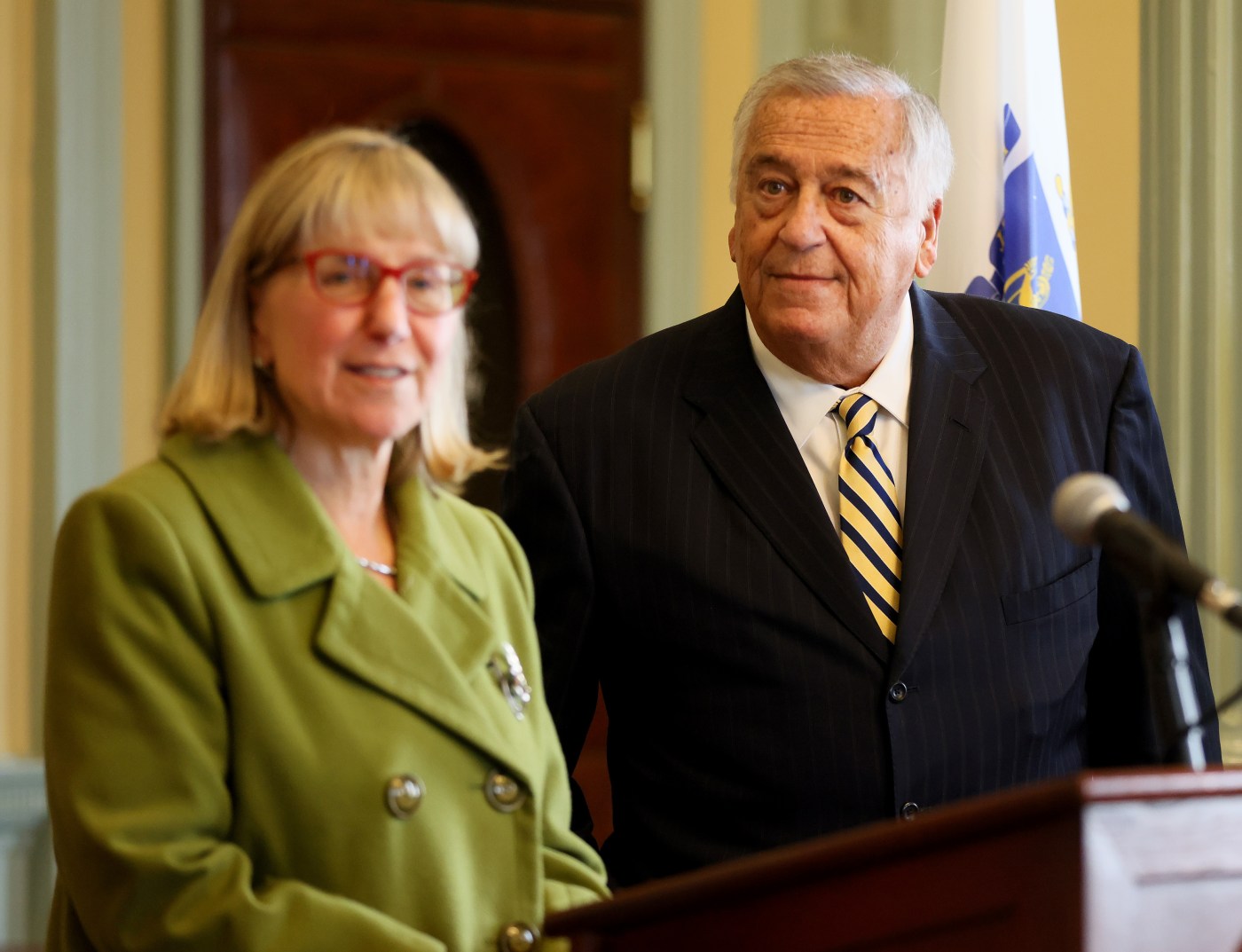
Pols & Politics: Does the legislative clock and calendar matter on Beacon Hill?
As the sun rose over Beacon Hill during the early morning hours of Aug. 1, so too did the criticism toward lawmakers for leaving major policy proposals unfinished before the end of formal business for the year.
But more than a month after elected officials, staffers, and the public wearily trudged out of the State House, top Democrats have secured agreements on an increasing number of critical bills during a stretch of time when they are typically focused on their reelection bids or preparing to leave office.
At least four compromises and one supplemental spending bill have managed to make their way out of private talks since July 31, when the Legislature was supposed to largely clock out for the year.
Now, the question on the minds of many is whether Beacon Hill will make the overtime dealmaking a norm or call it a one-off.
Massachusetts Taxpayers Foundation President Doug Howgate, a former staffer for the powerful Senate budget-writing committee, said legislators and political observers need to have conversations about how to improve the “logjam at the end of session.”
But the most important issue right now, he said, is getting “good pieces of legislation done.”
“I think productivity now on important pieces of legislation is a good thing, and getting stuff done … is something that we need to hopefully continue the momentum on,” he told the Herald.
There is some recent precedent for stretching talks on policies into the fall of the second year of a session.
In 2020, after the pandemic threw nearly everything into disarray, Beacon Hill lawmakers took the extraordinary step of suspending their rules to extend formal lawmaking through early January 2021, the end of the two-year term.
Related Articles
Pols & Politics: The money behind the effort to crack open Beacon Hill’s books
Pols & Politics: November is fast approaching. Here’s what’s at stake for Massachusetts
Pols & Politics: Republicans say this race is one of their best shots at picking up a Mass. Senate seat
Pols & Politics: Mass. senator eyeing legal fund to finance shelter-related record challenges
Pols & Politics: Three Massachusetts House races that offer glimmers of competition
Democrats were negotiating roughly six major items as the calendar turned to November in 2020 — the fiscal year 2021 budget, a climate bill, health care policies, an economic development proposal, a transportation borrowing bill, and major police reforms.
Most of those bills, including the budget and police reform, would clear the finish line and be signed into law by former Gov. Charlie Baker. The economic development bill was partially approved while the climate change bill was pocket vetoed by Baker, according to state records.
With five high-profile bills still locked up in secretive talks heading this session, Progressive Massachusetts Policy Director Jonathan Cohn said the fall dealmaking proves “all of their self-imposed deadlines are fake.”
The proposals cover a wide range of issues including prescription drugs, hospital oversight, clean energy, and economic development. But Cohn argued breakthroughs on major bills could have happened earlier.
“If you push off everything to the end of the session, and then you have all the conference committees at the same time and you have people who are in multiple of them, they simply won’t get things done,” he said. “The way in which they slowly finished things after (July 31) speaks to how it would have been a perfectly functional way to operate if they just started everything early.”
Gov. Maura Healey pressured lawmakers to return to work on the economic development and clean energy measures shortly after the Legislature left them by the wayside when they concluded formal business for the year.
But the two branches are far apart and deals remain elusive.
House Speaker Ron Mariano and Senate President Karen Spilka have signaled they are ready to call their members back into a special formal session to complete work on the economic development bill should an agreement be reached.
But lawmakers are not dealing with the upheaval of a worldwide pandemic. Top Democrats instead fell victim to their own inability to bridge divides in a timely fashion before formal business came to a close, critics have argued
Paul Craney, the spokesman of the pro-market tax and spending watchdog Massachusetts Fiscal Alliance, said legislators must adhere to the end of formal lawmaking by July 31 of the second year of a session, a deadline that attempts to prevent them from accomplishing major workaround or after elections.
“It was put there to keep these politicians somewhat accountable so that they don’t play games right before an election or play games right after the election,” Craney said in an interview. “I think a lot of these problems that Beacon Hill suffers from are completely self-imposed, and we have a very long legislative session compared to other states. A lot of other states are much more efficient.”
The Massachusetts State House dome centers this view of Beacon Hill from the Mass Ave Bridge.(Photo by Jim Michaud/ Boston Herald)
